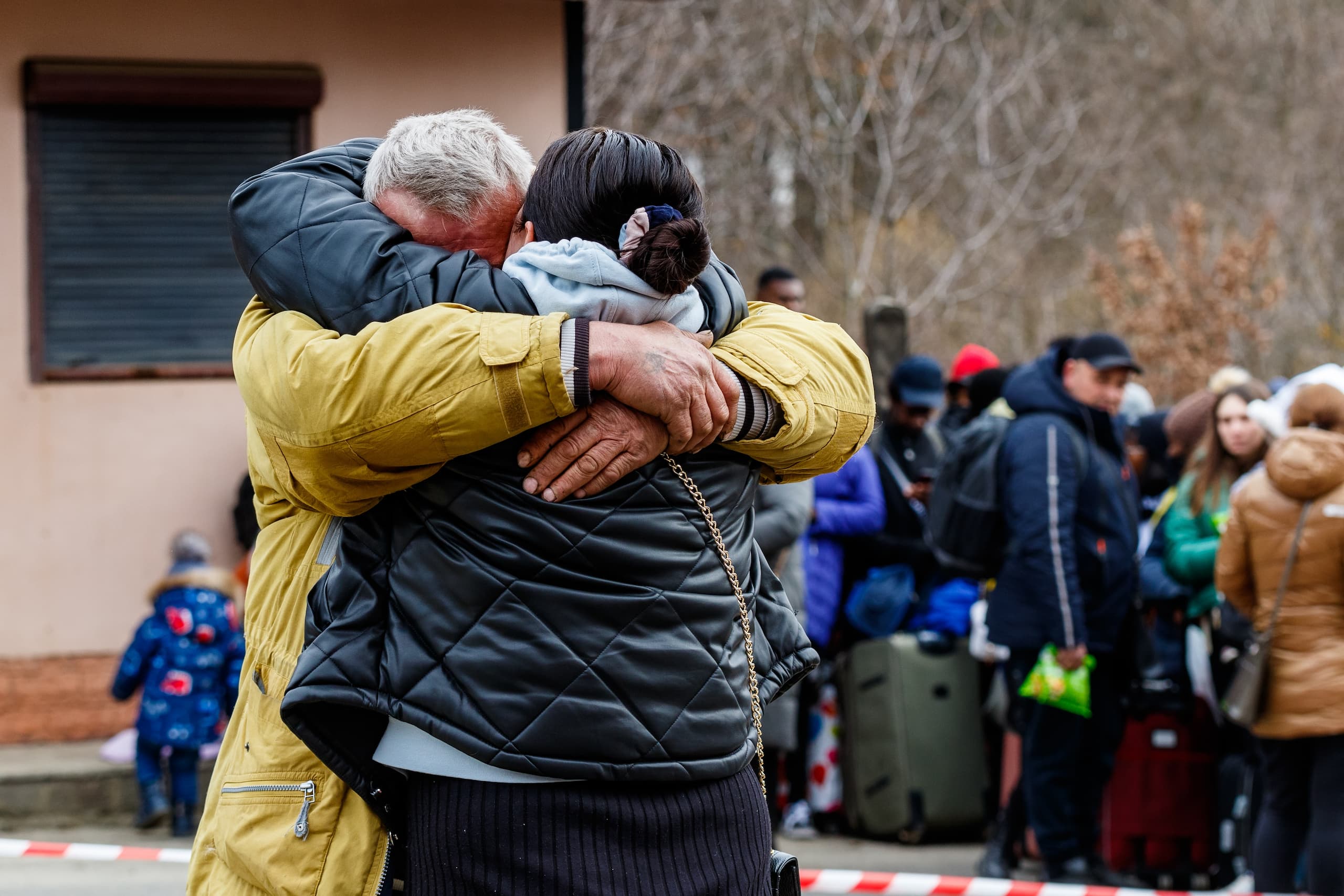The Question of Compassion
People working in refugee resettlement are often motivated by compassion. This is perhaps especially true for those who engage directly with clients—caseworkers, casework assistants, volunteers, interpreters, and the range of housing, education, and employment specialists. Compassion is defined by Trzeciak & Mazzarelli as an “emotional response to another’s pain or suffering, involving an authentic desire to help.” This impetus to help is the necessary action that sets compassion apart from other emotional responses to suffering, such as empathy or pity. From a moral and ethical standpoint, compassion is unquestionably important in resettlement. But does it have any discernable impact on the lives of the refugees and other newcomers we serve?
Ethnographic research conducted in resettlement offices in the United States illustrates how staff frequently feel compelled to prioritize burdensome bureaucratic requirements, leaving little time to focus on meeting more immediate client needs. This imbalance threatens to facilitate “paper integration” at the expense of meaningful social integration, diminishing the possibilities for more client-centered (and compassionate) service delivery. The current shift toward data-driven and evidence-based programming in resettlement offers clear benefits to service quality and ability to measure impact. But it also poses the risk that client-facing staff must spend too much time entering data into computers and not enough time focusing on clients, especially during periods when staff time and other resources are scarce. To date, there has been little consideration of any possible negative effects of this on client outcomes.
The COVID-19 pandemic curtailed opportunities for in-person services and compelled creative workarounds to enable continued service delivery under conditions of social distancing. Many of these innovations are remarkable, and at least some are likely to continue post-pandemic. However, questions about their effects on client outcomes—particularly regarding the risks of services becoming depersonalized through physical and social distancing—remain largely unasked. Furthermore, policy discussions on resettlement reforms frequently question ongoing relevance of the casework-centric model of U.S. resettlement, forged more than four decades ago. For example, arguments supporting greater use of cash grants in resettlement or more efficient virtual resettlement models seldom consider any possible costs of such changes to our ability to deliver services with compassion. Considered together, these dynamics may undervalue compassion as a “nice-to-have” in refugee resettlement, as opposed to a “need-to-have.”
The Science of Caring
A growing body of evidence, mostly from healthcare settings, suggests we should be less accepting of compassion as a “nice-to-have.” The “science of caring” demonstrates that compassion can make a critical difference for people confronting some of the worst moments in their lives. This effect is independent of the efficacy of treatment or services.
Compassion can be especially important for those who are most vulnerable. For example, one study showed that elderly patients were more likely to survive heart attacks beyond six months when they received emotional support in recovery. Compassion has also been shown to modulate the experience of physical pain. Patients with terminal conditions may live longer and enjoy a higher quality of life when they are treated with compassion. Those managing chronic diseases show improved clinical outcomes when treatment is delivered with compassion. Importantly, research also shows that treating patients with compassion can have a strong effect on their self-care. Patients are more likely to adhere to treatment if they feel that the health workers who are treating them also care about them. One study of more than 1,700 patients with HIV showed that those who felt their physicians knew them as a person had 33% higher odds of adherence to therapy and 20% higher odds of showing no detectable virus in the blood.
What Does This Mean for Refugee Service Providers?
Inspired by the extraordinary evidence from the healthcare literature, we set out to explore the literature on compassion in resettlement contexts. To date, we have not identified any high-quality studies of the relationship between compassion and refugee outcomes in humanitarian settings. We are hoping this will change as we learn more, but the gap is nevertheless troubling. It suggests that compassion has not been prioritized in the refugee resettlement sector, despite lip-service to the contrary. But what if we are wrong for not prioritizing compassion? What if the staggering findings from healthcare apply (even in part) to support for resettled refugees? By continuing to ignore the question, we could be squandering important and easily implementable opportunities to enhance the lives of our clients and improve their outcomes. Evidence from the field of “compassionomics” offers a compelling rationale for more scientific research on the relationship between compassion in service delivery and refugee outcomes in resettlement contexts. When asked, many experienced resettlement practitioners agree, often passionately, that refugee clients most likely pay a considerable price when resettlement providers disregard the importance of compassion. We need to act on that!
If we can demonstrate that compassion matters in refugee resettlement, would this make a difference to our practice? Findings from the healthcare sector suggest that merely knowing that compassion is important for clients is not always enough to bring about change. There is an inevitable problem around the perception of time required to be compassionate. One study showed that 56% of physicians believe they do not have time for compassion, despite another study showing that just 40 seconds of compassion made a significant difference. Forty seconds won’t be enough in all cases, but compassion that has a transformative impact on resettled refugees probably requires less time and effort than we think. The drivers of what appears to be an ever-deepening compassion deficit in refugee resettlement are complex and deeply rooted. We can only start to address these when we can demonstrate that compassion matters for our clients.
An emerging science of caring also suggests that the positive effects of compassion go beyond clients. Compassionate service delivery is associated with increased staff well-being, lower rates of staff turnover, and improved organizational performance. These important potential benefits of being more deliberately compassionate in resettlement contexts are the subjects of future discussions.










